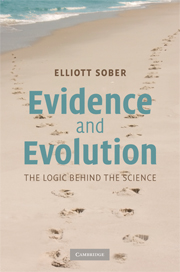Preface
Published online by Cambridge University Press: 05 June 2012
Summary
Biologists study living things, but what do philosophers of biology study? A cynic might say “their own navels,” but I am no cynic. A better answer is that philosophers of biology, and philosophers of science generally, study science. Ours is a second-order, not a first-order, subject. In this respect, philosophy of science is similar to history and sociology of science. A difference may be found in the fact that historians and sociologists study science as it is, whereas philosophers of science study science as it ought to be. Philosophy of science is a normative discipline, its goal being to distinguish good science from bad, better scientific practices from worse. This evaluative endeavor may sound like the height of hubris. How dare we tell scientists what they ought to do! Science does not need philosopher kings or philosophical police. The problem with this dismissive comment is that it assumes that normative philosophy of science ignores the practice of science. In fact, philosophers of science recognize that ignoring science is a recipe for disaster. Science itself is a normative enterprise, full of directives concerning how nature ought to be studied. Biologists don't just describe living things; they constantly evaluate each other's work. Normative philosophy of science is continuous with the normative discourse that is ongoing within science itself. Discussions of these normative issues should be judged by their quality, not by the union cards that discussants happen to hold.
- Type
- Chapter
- Information
- Evidence and EvolutionThe Logic Behind the Science, pp. xv - xviiiPublisher: Cambridge University PressPrint publication year: 2008



